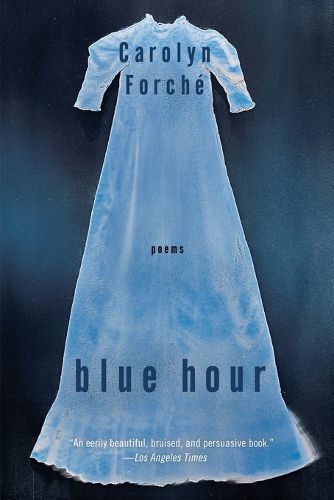Readings Newsletter
Become a Readings Member to make your shopping experience even easier.
Sign in or sign up for free!
You’re not far away from qualifying for FREE standard shipping within Australia
You’ve qualified for FREE standard shipping within Australia
The cart is loading…






Blue Hour is an elusive book, because it is ever in pursuit of what the German poet Novalis called ‘the [lost] presence beyond appearance.’ The longest poem, ‘On Earth, ’ is a transcription of mind passing from life into death, in the form of an abecedary, modeled on ancient gnostic hymns. Other poems in the book, especially ‘Nocturne’ and ‘Blue Hour, ’ are lyric recoveries of the act of remembering, though the objects of memory seem to us vivid and irretrievable, the rage to summon and cling at once fierce and distracted.
The voice we hear in Blue Hour is a voice both very young and very old. It belongs to someone who has seen everything and who strives imperfectly, desperately, to be equal to what she has seen. The hunger to know is matched here by a desire to be new, totally without cynicism, open to the shocks of experience as if perpetually for the first time, though unillusioned, wise beyond any possible taint of a false or assumed innocence.
– Robert Boyers
$9.00 standard shipping within Australia
FREE standard shipping within Australia for orders over $100.00
Express & International shipping calculated at checkout
Stock availability can be subject to change without notice. We recommend calling the shop or contacting our online team to check availability of low stock items. Please see our Shopping Online page for more details.
Blue Hour is an elusive book, because it is ever in pursuit of what the German poet Novalis called ‘the [lost] presence beyond appearance.’ The longest poem, ‘On Earth, ’ is a transcription of mind passing from life into death, in the form of an abecedary, modeled on ancient gnostic hymns. Other poems in the book, especially ‘Nocturne’ and ‘Blue Hour, ’ are lyric recoveries of the act of remembering, though the objects of memory seem to us vivid and irretrievable, the rage to summon and cling at once fierce and distracted.
The voice we hear in Blue Hour is a voice both very young and very old. It belongs to someone who has seen everything and who strives imperfectly, desperately, to be equal to what she has seen. The hunger to know is matched here by a desire to be new, totally without cynicism, open to the shocks of experience as if perpetually for the first time, though unillusioned, wise beyond any possible taint of a false or assumed innocence.
– Robert Boyers